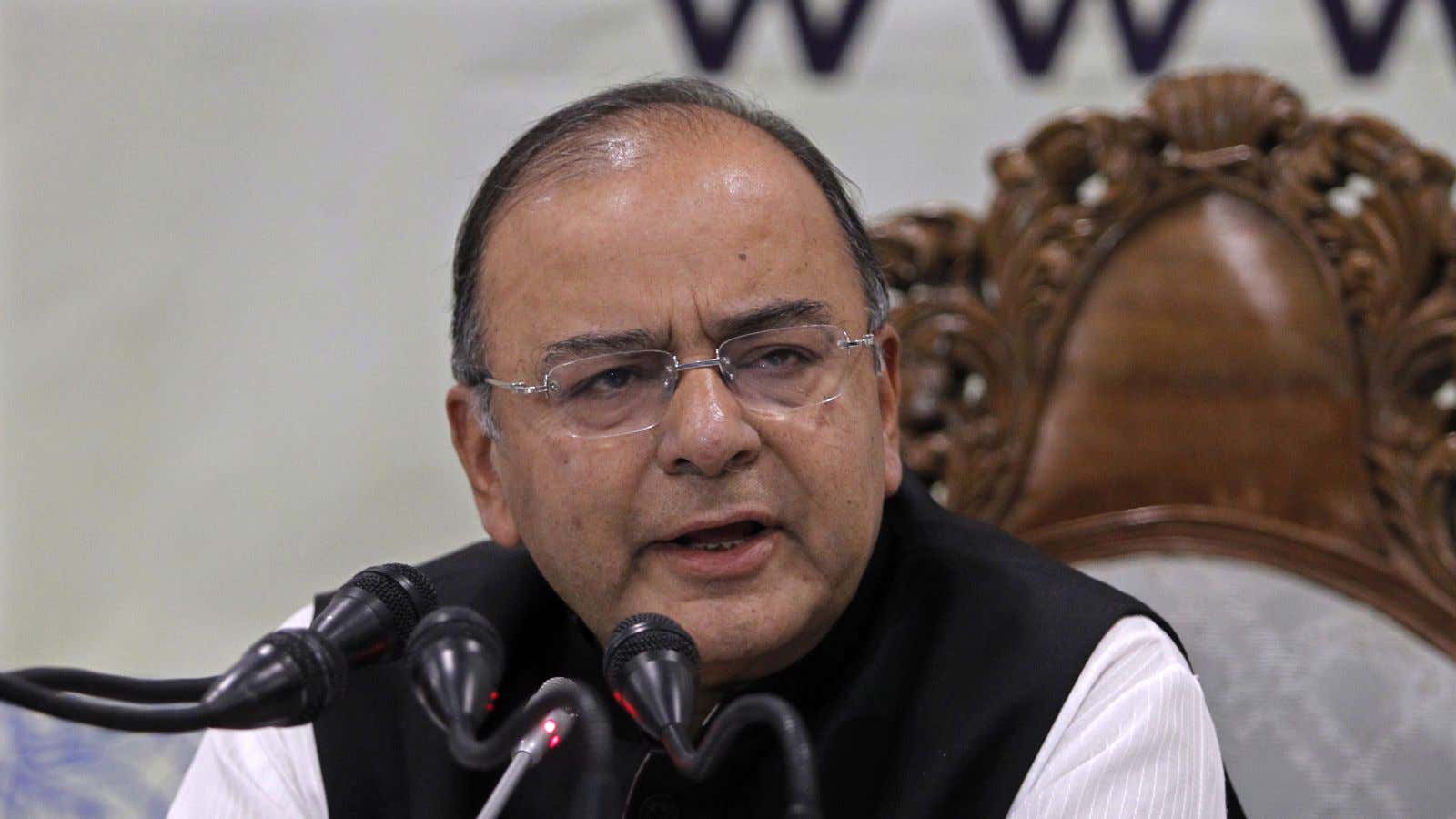India’s finance minister is in a bit of a fix. Arun Jaitley has promised that fiscal deficit will be restricted to under 4.1% of the GDP—but he also needs to get the growth engine going.
That means he’ll have to do some tax revamps—for individuals and corporates—in his budget to keep the revenues coming in, while big investments and social sector schemes are rolled out.
Here are five taxes that Jaitley will most likely tinker with on Feb. 28.
Personal income tax
In July, in the interim budget, Jaitley raised the personal income tax exemption by Rs50,000 to Rs2.5 lakh in case of tax-payers below the age of 60. This time, there is talk that he will further please the earning class. The tax slabs may be tweaked upwards, and the exemption limit for tax savings might be also increased. Both mean higher savings and more disposable income.
Corporate taxes
Indian companies are pinning their hopes on the government for reducing the minimum alternate tax (MAT) that they have to pay on their profits. Currently, the MAT is levied at 18.5% of the company’s book profit, which is in addition the 30% corporate tax that domestic companies have to pay on their income. A book profit is an unrealised profit.
Suggestions include cutting the MAT for manufacturing companies. “This will have the benefit of showcasing the government’s clear mindset and focus towards promoting and incentivising the manufacturing sector,” Girish Vanvari, head of tax at KPMG India, wrote earlier this week.
Goods and services tax (GST)
Perhaps the most important indirect tax reform since independence, the GST still needs a proper rollout plan. And this budget, Jaitley is expected to give a specific date for the GST implementation.
The GST will be applied to goods and services, as against the current value added tax (VAT) on goods. It will bring the VAT, the CENVAT (central value added tax) and the service tax under one umbrella tax, the GST. The single tax will reduce duplication of taxes at the state and central level and make taxation and logistics simpler, in turn reducing overall cost for companies.
Securities Transaction Tax (STT)
The STT is basically a tax an investor pays when buying or selling equity shares as a long-term investment. Currently, the STT is 0.1% of the transaction value. Experts want this tax—termed by some as even “bizarre”—to be completely abolished, so that the poor retail investor participation in India’s capital markets improves.
The ANMI (Association of National Exchanges Members of India), an organisation of brokers, has lobbied with the government to withdraw the STT entirely or allow it to be set off against tax liabilities.
Taxes on e-commerce companies
The finance minister is also expected to clarify some of the confusing tax issues for e-commerce companies, which are expected to grow (pdf) to $100 billion (Rs6.2 lakh crore) by 2020.
There is a need for clarity in the budget on indirect taxation on e-commerce sector and potential simplification of the rules, Raja Lahiri, partner at Grant Thornton India LLP, said in a note.
Lahiri also wrote that he expects the budget to resolve questions on the marketplace model and tax implications around it as opposed to buy-sell inventory model for e-commerce activities.
The market-place model, which is used by Amazon and Flipkart, basically allows third-party retailers sell directly through the company website.
A clear tax structure and avoiding duplication of taxes would mean some respite to e-commerce companies whose combined losses have touched almost Rs1,000 crore. (pdf)
